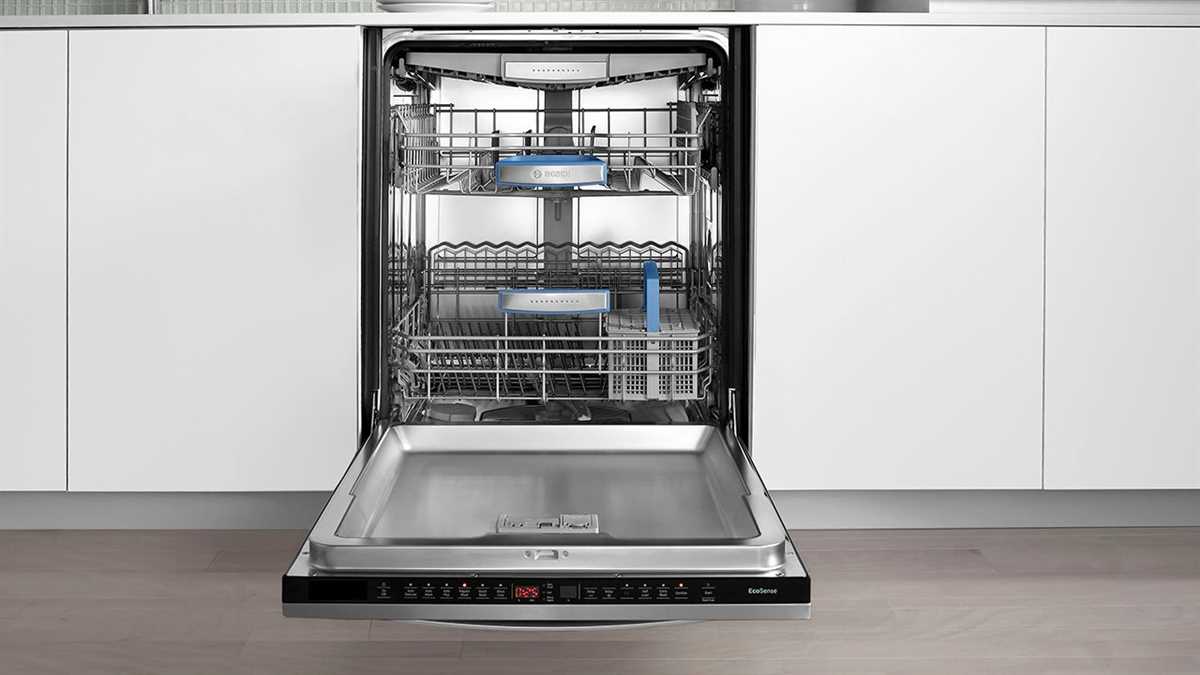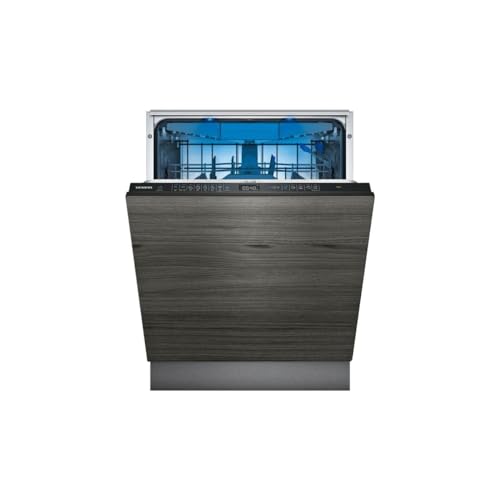
Running a dishwasher may seem like a small expense, but when you consider the electricity usage and other costs, it can quickly add up. That’s why it’s important to be aware of the factors that impact your dishwasher’s running costs.
One major difference in running costs is the energy efficiency of the dishwasher. Energy-efficient models could save you hundreds of pounds each year compared to older, less efficient machines. In fact, a recent study revealed that using an energy-efficient dishwasher could save you up to £3000 over the course of its lifetime.
But running costs go beyond just electricity. There’s also the cost of water, detergent, and other maintenance expenses. For example, dishwasher dupe tablets, which are a cheaper alternative to brand-name detergents, can save you dozens of pounds each year. Additionally, applying money-saving tips like running your dishwasher only when it’s full can help you further cut down on costs.
It’s also worth noting that dishwasher running costs can vary for different households. Pensioners, for instance, may qualify for free energy-saving appliances through government schemes. And for those who live alone, the monthly running costs may be significantly lower compared to larger households.
So, what are the cheapest dishwasher models on the market? According to a recent survey conducted by Costa Inquire, the cheapest appliances start at around £1500, whereas the most expensive can put you well over £30000. However, it’s important to consider the long-term cost rather than just the upfront price. Investing in a more energy-efficient dishwasher may save you more money in the long run.
In conclusion, understanding and managing your dishwasher’s running costs can help you save significant amounts of money each year. By choosing an energy-efficient model, applying money-saving tips, and taking advantage of any available schemes or discounts, you can keep your dishwasher running smoothly while keeping costs low.
Understanding Dishwasher Running Costs in the UK
In the UK, many households rely on dishwashers to save time and effort when it comes to washing dishes. However, it’s important to understand the running costs associated with using a dishwasher. Let’s delve into some key aspects to consider.
Monthly Costs
When using a dishwasher, the cost depends on various factors including the energy usage, water consumption, and detergent required. On average, running a dishwasher in the UK adds about £45 to £50 per year to your electricity bills, which translates to around £3.75 to £4.16 per month.
Energy Efficiency
Choosing an energy-efficient dishwasher can help reduce monthly running costs. Look for dishwashers with high energy efficiency ratings, such as models with an A+++ rating. These models are designed to use less electricity, which can translate to lower overall costs in the long run.
Water Consumption
Water usage is another important consideration. Modern dishwashers are designed to use less water compared to hand-washing. On average, a dishwasher uses around 6-15 liters of water per load, while hand-washing can consume up to 49 liters. By using a dishwasher, you can save a significant amount of water, making it a more environmentally friendly option.
Detergent Costs
The type of detergent you use can also impact running costs. Dishwasher tablets are a popular choice and can offer convenience and effective cleaning. However, it’s important to note that dishwasher tablets can be more expensive compared to other detergent options. Consider using dishwasher powders or liquids, as they tend to be more cost-effective.
Savings Compared to Hand-washing
Using a dishwasher can lead to significant savings compared to hand-washing. The time and effort saved using a dishwasher is invaluable for many households. Additionally, dishwashers are more efficient and can clean dishes at higher temperatures, leading to better hygiene and cleanliness.
Conclusion
Understanding the running costs of a dishwasher is essential for planning your household budget. While initial purchase costs may be higher, the long-term benefits in terms of time and money saved make dishwashers a worthwhile investment for many households in the UK.
How Much Does It Cost to Run a Dishwasher in the UK?
In the UK, the cost of running a dishwasher can vary depending on various factors such as the model, market rates, and the efficiency of the machine. While some dishwashers may be more energy-efficient and cost-effective to run, others may consume more electricity and, therefore, be more expensive in the long run.
If you’re looking to save money on running costs while still getting a quality dishwasher, there are a few factors to consider:
Energy Efficiency Ratings:
When purchasing a dishwasher, look for models that have high energy efficiency ratings. The more efficient the dishwasher is, the less it will cost to run. Dishwashers with an A+++ rating are often the most energy-efficient and money-saving options available.
Water Usage:
Some dishwashers use less water compared to others. By choosing a dishwasher that has a lower water consumption rate, you can save on water bills as well. Look for models that offer a water-saving feature or have a low-water usage rating.
Cleaning Programs:
Many modern dishwashers come with different cleaning programs to suit various needs. By selecting the appropriate program for your dishes and cutlery, you can ensure that your dishwasher is running efficiently and not wasting additional energy or water.
Running Costs:
While dishwashers vary in their running costs, on average, it costs around £100-£120 per year to run a dishwasher in the UK. This estimate is based on a dishwasher that is used approximately three times a week. However, the actual costs can differ depending on the specific model, energy rates in your local area, and the frequency of use.
Additional Tips:

To further reduce the running costs of your dishwasher, you can follow these additional tips:
- Ensure that the dishwasher is loaded properly to maximize its capacity and minimize the number of cycles needed.
- Use eco-friendly dishwasher detergents that are designed to be more efficient and use less energy.
- Consider using off-peak hours to run your dishwasher, as electricity rates tend to be lower during these times.
- Regularly clean and maintain your dishwasher to ensure its optimal performance and efficiency.
In conclusion, the cost of running a dishwasher in the UK can vary depending on several factors. By selecting an energy-efficient model, being mindful of water usage, and following some money-saving tips, you can keep your running costs down while still enjoying the convenience and effectiveness of a dishwasher.
Tips to Reduce Dishwasher Running Costs
When it comes to saving money on your dishwasher running costs, there are a few tips and tricks that you can follow. These can help you reduce your monthly bills and keep more money in your pocket. Here are some tips to consider:
1. Choose an energy-efficient brand
One of the most important factors to consider when buying a new dishwasher is its energy efficiency. Look for a brand that is known for producing energy-efficient models. This will help you save on your electricity bills in the long run.
2. Use lower wattage settings
Most modern dishwashers have different wash cycle options. Consider using the lower wattage settings for your everyday loads. This will save energy without compromising the cleanliness of your dishes.
3. Fully load your dishwasher
A fully loaded dishwasher is more efficient than a half-empty one. Try to wait until your dishwasher is full before running a cycle. This will help you save water and energy.
4. Skip the pre-washing

Many people pre-wash their dishes before putting them in the dishwasher. However, most modern dishwashers are designed to handle food residue. Skip the pre-washing step to save time, water, and energy.
5. Take advantage of off-peak hours
Some electricity providers offer off-peak rates during certain hours of the day. Check with your provider to see if they have any special time-of-use plans. Running your dishwasher during these off-peak hours can help you save money on your electricity bill.
6. Consider using eco-friendly detergent
Using eco-friendly detergent not only helps the environment but can also save you money. These detergents are usually more concentrated, so you can use less with each load. Check the label for recommendations on how much to use.
7. Maintain your dishwasher
Regular maintenance can help prolong the lifespan of your dishwasher and keep it running efficiently. Clean the filter regularly, check for any blockages in the spray arms, and ensure that the seals are in good condition.
8. Fix any leaks
If you notice any leaks or drips from your dishwasher, it’s important to fix them as soon as possible. Leaks not only waste water but can also damage your kitchen floor or cabinets.
9. Consider an express or quick wash cycle

If you have lightly soiled dishes, consider using an express or quick wash cycle. These cycles are shorter and use less water and energy than the regular cycles.
10. Invest in a water softener
If you live in an area with hard water, investing in a water softener can help reduce the amount of detergent and rinse aid you need to use, saving you money in the long run.
By following these tips, you can reduce your dishwasher running costs and save money on your monthly bills.
The Impact of Energy Efficiency Ratings on Running Costs

When it comes to properly understanding the running costs of a dishwasher, one of the most important factors to consider is its energy efficiency rating. This rating not only affects the amount of energy the appliance uses, but also has a direct impact on your electricity bills and the overall cost of using the dishwasher on a regular basis.
In the UK, energy efficiency ratings are typically displayed on a scale from A+++ to D, with A+++ being the most energy-efficient and D being the least. Higher-rated appliances consume less energy and therefore cost less to run, making them a more cost-effective option in the long run.
Switching to a more energy-efficient dishwasher can save you hundreds of pounds per year in energy costs. According to a study by Statista, households in the UK spend an average of £150 per year on dishwasher running costs. However, by switching to an A+++ rated dishwasher, you could reduce this cost by up to £80 per year.
Not only can an energy-efficient dishwasher help you save money, but it also has a positive impact on the environment. By using less energy to operate, these appliances reduce greenhouse gas emissions and contribute to a cleaner and more sustainable future.
How Energy Efficiency Ratings Work
The energy efficiency rating of a dishwasher is determined by its energy consumption per cycle. The lower the energy consumption, the higher the rating. Dishwashers with higher ratings typically use less water and have shorter cycle times, resulting in both energy and water savings.
Energy-efficient dishwashers achieve these savings through various technologies and features, including:
- Efficient water spray patterns that ensure thorough cleaning with minimal water usage
- Insulation to minimize heat loss and reduce energy waste
- Sensor technology that adjusts the wash cycle based on the load size and soil level, reducing overall water and energy consumption
- Efficient motors and pumps that use less energy while still providing effective cleaning power
By investing in an energy-efficient dishwasher, you’re not only saving money on your electricity bills, but also contributing to a greener planet.
Important Tips for Energy-Efficient Dishwasher Use
To maximize the energy-saving benefits of your dishwasher, here are some valuable tips:
- Only run the dishwasher when it’s fully loaded. Running half-empty loads wastes both energy and water.
- Avoid pre-rinsing dishes before placing them in the dishwasher. Most modern dishwashers have powerful cleaning capabilities and can handle even heavily soiled dishes. Pre-rinsing is unnecessary and wastes water.
- Choose the appropriate cycle and settings for each load. Many dishwashers offer eco-friendly or energy-saving cycles that use less water and energy without compromising cleaning performance.
- Regularly clean and maintain your dishwasher. A clean dishwasher operates more efficiently and effectively.
By following these tips and investing in an energy-efficient dishwasher, you can significantly reduce your running costs and have a positive impact on both your wallet and the environment. So, the next time you’re in the market for a dishwasher, make energy efficiency a top priority.
Available Support for Those Struggling with Dishwasher Costs in the UK
If you find yourself struggling with the running costs of your dishwasher in the UK, there are options available to help alleviate the financial burden. Here are some options you can consider:
1. Cheapest Energy Suppliers
One way to reduce the cost of running your dishwasher is by finding the cheapest energy supplier in the UK. Energy comparison websites reveal the most affordable options available, allowing you to switch to a provider with lower rates.
2. Energy Efficiency
An energy-efficient dishwasher can significantly reduce your monthly electricity bill. Look for models that have high Energy Efficiency Ratings (EER) and Water Efficiency Ratings (WER) to ensure you choose the most cost-effective option.
3. Load and Usage
Consider adjusting your dishwasher usage habits to reduce energy consumption. Only run your dishwasher when it’s fully loaded, and avoid pre-rinsing dishes as most modern machines can handle food residue. Additionally, using the eco-cycle setting can help save energy and water.
4. Grants and Financial Support
Some individuals or households may be eligible for grants or financial support to assist with their dishwasher running costs. Check with local authorities or charitable organizations to see if you qualify for any available assistance programs.
5. Hand-Washing Alternatives

If all else fails, you can consider hand-washing dishes as an alternative to using a dishwasher. While it may not be as convenient, hand-washing can significantly reduce energy consumption and lower your monthly utility bills.
Remember, small changes in your dishwasher usage habits and exploring available support options can make a big impact on your overall running costs. Don’t hesitate to reach out for assistance if you need it.
Government Programs and Grants to Help with Dishwasher Energy Expenses
If you’re concerned about the rising costs of running a dishwasher and want to find ways to save money on your energy bills, there are government programs and grants available to assist you. These programs are designed to help individuals and families reduce their energy consumption and lower their monthly expenses. Here’s a list of some of the programs and grants you may be eligible for:
- Energy Savings Trust (EST) Grants: The Energy Savings Trust offers grants to homeowners and tenants to make energy-efficient improvements in their homes. These grants can be used to upgrade your dishwasher to a more energy-efficient model, helping you save on energy costs in the long run.
- Smart Metering: The government is in the process of rolling out smart meters across the UK. These meters provide real-time information about your energy usage, allowing you to monitor and adjust your dishwasher’s energy consumption for maximum savings. Smart meters can be obtained through your energy supplier.
- Low-income Energy Efficiency Grants: If you’re on a low income, you may be eligible for grants specifically aimed at helping low-income households reduce their energy consumption. These grants can be used to purchase a more energy-efficient dishwasher or make other energy-saving improvements in your home.
These are just a few examples of the programs and grants available. It’s important to check with your local government or energy provider to see what options are available in your area. Applying for these grants can often be done online or through a simple application process.
In addition to government programs, there are other steps you can take to reduce your dishwasher’s energy expenses:
- Choose a dishwasher with an energy-efficient rating. Look for the Energy Star label, which indicates that the dishwasher meets strict energy efficiency guidelines.
- Load your dishwasher efficiently. Make sure you fill it up before running a cycle to maximize the energy used per load. Avoid overloading or underloading the dishwasher, as this can affect its efficiency.
- Use the energy-saving settings on your dishwasher. Many models have eco-friendly settings that use less water and energy. Refer to your dishwasher’s manual to learn how to access these settings.
- Consider using a dishwasher detergent that is specifically designed for energy-efficient machines. These detergents are formulated to work effectively with lower water temperatures, reducing the energy required to heat the water.
- Run your dishwasher during off-peak hours. Some energy providers offer lower rates during certain times of the day, so running your dishwasher during these periods can result in savings on your energy bill.
By taking advantage of government programs, grants, and implementing these energy-saving tips, you can significantly reduce the energy costs associated with running a dishwasher. It’s worth exploring the options available to you and making the necessary changes to save both money and energy.
FAQ
Are dishwasher running costs going to increase in 2023?
There is currently no information indicating that dishwasher running costs will increase in 2023.
What is the average cost of running a dishwasher in the UK?
The average cost of running a dishwasher in the UK is around £42 per year.
Can I save money on dishwasher running costs?
Absolutely! You can save money on dishwasher running costs by using energy-efficient dishwasher models, keeping the dishwasher full when running a cycle, and using the eco-friendly setting.
Are there any government schemes or grants available to help with dishwasher running costs?
Currently, there are no specific government schemes or grants available for dishwasher running costs. However, you may be eligible for general energy-saving grants or programs that can help reduce your overall energy costs.
How much water does a dishwasher use per cycle?
An average dishwasher uses around 12-15 litres of water per cycle.
Is it cheaper to wash dishes by hand or use a dishwasher?
In general, using a dishwasher is more cost-effective than washing dishes by hand. A dishwasher uses less water and energy, making it a more efficient option in the long run.
















